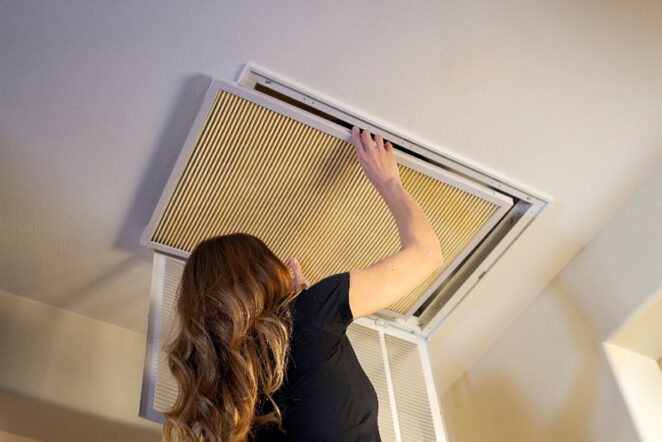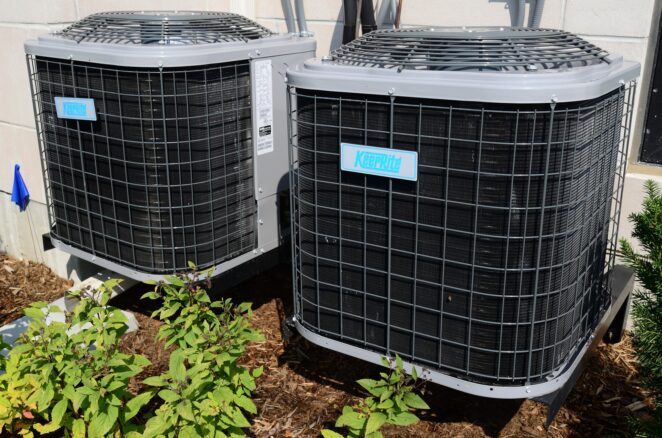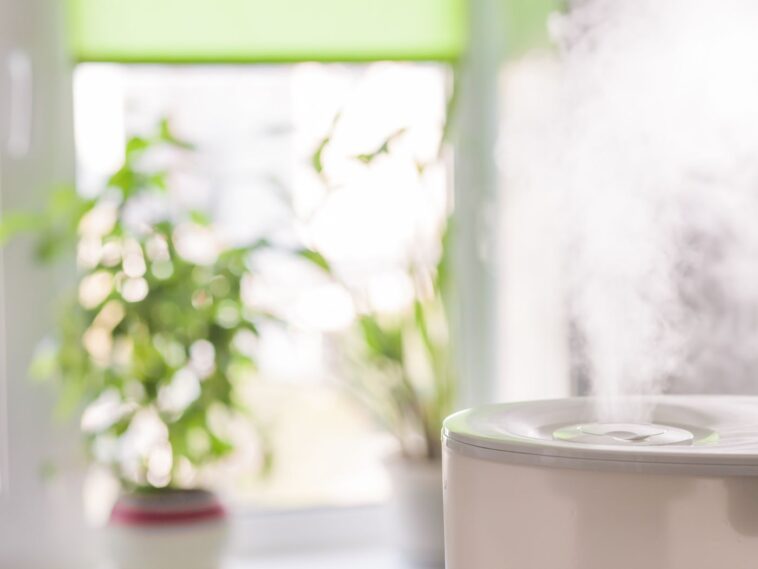Do you ever feel like your home is more than just four walls and a roof? That it’s a haven of comfort, safety, and well-being – not only for yourself but also for your family members? While the design of our surroundings absolutely impacts the atmosphere in which we live, there may be an even simpler way to improve that atmosphere: by investing in air filters. Cleaner air can provide numerous benefits. From improved health to decreased energy costs, read on to learn how installing an air filter in your home can lead to improvements both big and small!
Air filters are essential for keeping your indoor air clean and healthy. They remove unwanted particles, such as dust, dirt, pollen, and pet dander, from the air in your home. There are four main types of air filters available on the market today—pleated filters, fiberglass filters, electrostatic filters, and HEPA filters—which vary in terms of their material, MERV rating, and beneficial features. Let’s take a close look at each type of filter in more detail so you can decide which is best for your place.
Pleated Filters
Pleated air filters are made from synthetic media that is pleated together into a single sheet. This helps to increase the surface area of the filter without increasing its size or depth. Pleated 14x30x1 air filters usually have a MERV rating from 5 to 13, which means they can capture particles ranging in size from 3 to 10 microns (the smaller the particle, the higher the MERV rating). Pleated filters are generally considered effective for trapping allergens like dust mites, mold spores, pet dander, and pollen.
Fiberglass Filters

Fiberglass air filters are made from spun glass fibers bonded together with adhesive. These air filters can trap larger particles like dust, dirt, and lint but cannot effectively trap smaller particles like mold spores or pet dander. They are also not very effective at removing odors or volatile organic compounds (VOCs). Fiberglass air filters usually have a MERV rating lies between 1 and 4; however, some higher-end models may have a MERV rating of up to 7.
Electrostatic Filters
Electrostatic air filters use an electrostatically charged material to attract pollutants from the air as it passes through them. This type of filter has no fiber media, so it does not need replacing as often as other types of filters; however, it needs to be washed regularly to maintain its effectiveness. Electrostatic air filters typically have a MERV rating between 8 – 16 which means they can capture particles ranging in size from 1 to 10 microns, making them more effective than pleated or fiberglass filters at trapping smaller particles such as smoke and bacteria.
In addition to being highly effective at removing airborne pollutants, they also help reduce energy costs by improving airflow efficiency within your system due to their low-resistance design.
HEPA Filters
HEPA (high-efficiency particulate arresting) air filters use fine mesh screens composed of millions of randomly arranged fibers that trap small particles such as pollen, dust mite waste, and smoke down to 0.3 microns in size with 99% efficiency. HEPA-rated air cleaners must meet specific standards set by governmental agencies before being sold on the market, making them one of the most reliable ways to improve indoor air quality, especially for those suffering from allergies or asthma who require extra protection against airborne contaminants in their home environment.
What are the benefits?

There are many benefits to installing an air filter in your home. One of the most important is that it can help improve your family’s health. Listed above are some of the main benefits.
Reduced Allergens & Asthma Symptoms
Air filters are designed to remove pollen, pet dander, mold spores, dust mites, and other allergens from the air in your home. By removing these allergens from the air you breathe, using an air filter can help reduce allergy symptoms such as sneezing, coughing, and watery eyes. It can also help to reduce asthma symptoms such as wheezing and difficulty breathing.
Improved Indoor Air Quality
The quality of the air inside your home is important for both your health and comfort. Installing an air filter can help to improve indoor air quality by trapping pollutants before they enter your lungs. This means that you’ll be breathing cleaner, healthier air every day which can help keep you feeling more energized and productive throughout the day. Additionally, it will make it easier for you to keep your house clean since there won’t be as much dust and debris floating around in the air.
Energy Efficiency
Installing an air filter can also save energy by helping to keep the inside temperature of your home consistent throughout the year. Without an air filter trapping dirt or small particles in its system, it will have to work harder to maintain a comfortable temperature in your house which will lead to higher energy bills each month. An efficient HVAC system with a high-quality filter will use less energy than one without a filter installed so it’s worth investing in one if you want to save money on energy costs over time!

Which Type Is Best for You?
When selecting an appropriate type of filter for your home’s HVAC system, it is crucial to consider both your needs and budget when making a decision – an inexpensive fiberglass filter may be sufficient if you only need basic filtration, but if you require something more robust than investing in one of the more expensive options such as an electrostatic or HEPA rated filter could provide additional benefits in terms of energy savings while providing better protection against airborne pollutants that can exacerbate respiratory conditions like asthma or allergies over time. Ultimately choosing which type is right for you will come down to finding a balance between cost-effectiveness vs. performance that best suits your individual needs.




